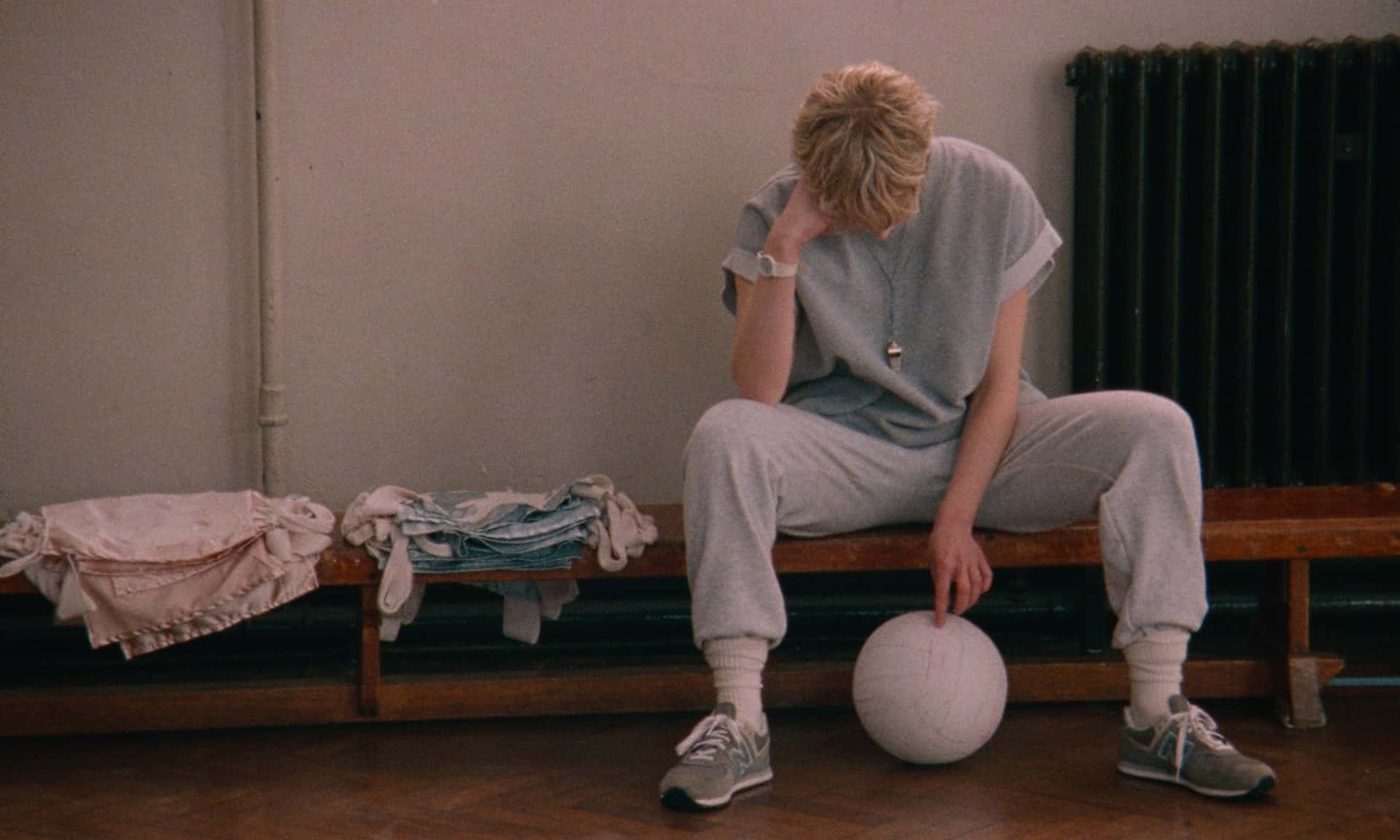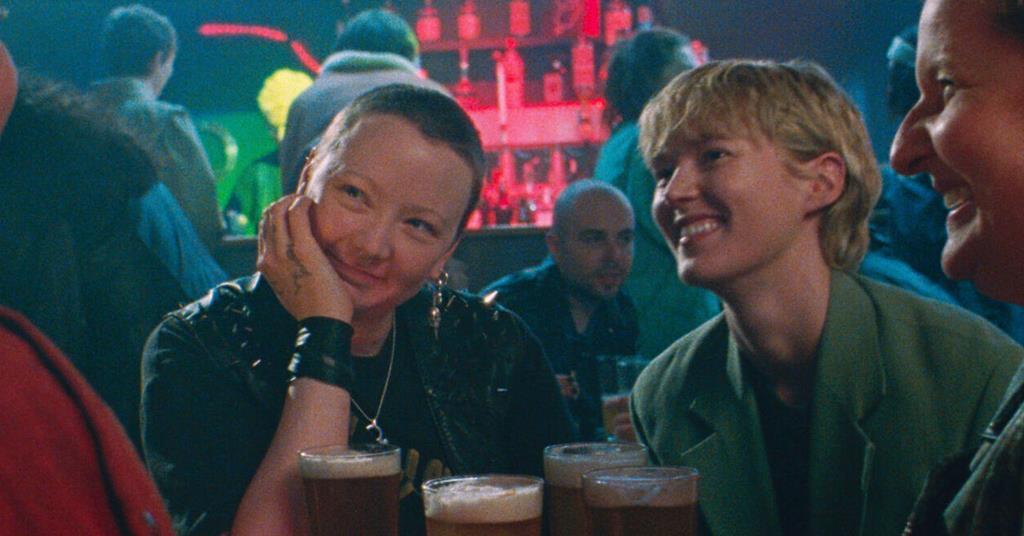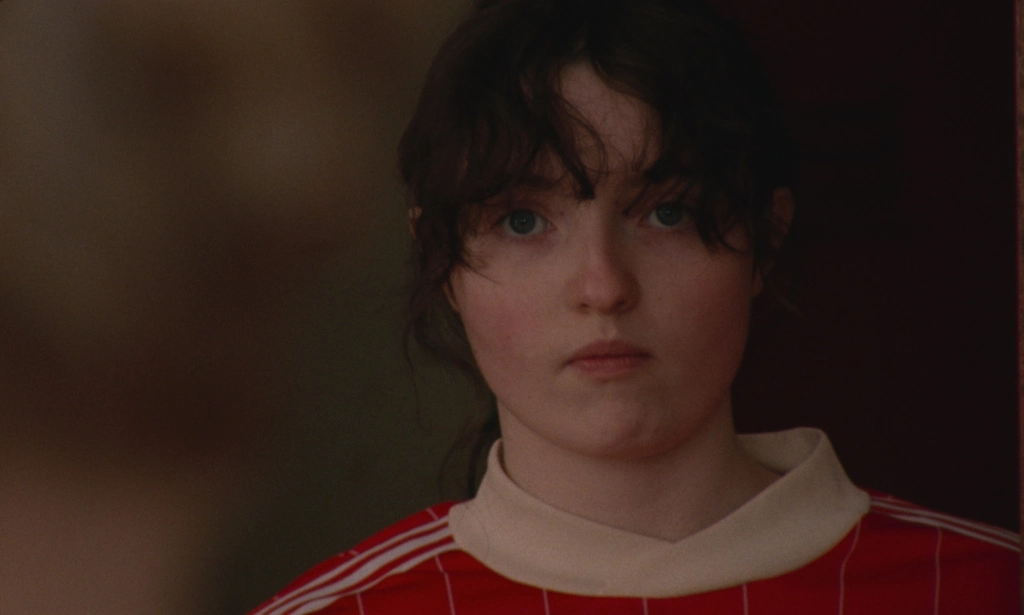Blue Jean (2023) – Review and Summary (with Spoilers)
Georgia Oakley’s “Blue Jean” is an honest, complex, and relevant portrait of how anti-LGBT laws impact the individual.

Spoiler Alert: This summary and review contains spoilers.
Additionally, some images and text may include affiliate links, meaning we may earn a commission or receive products if you make a purchase.
| Director(s) | Georgia Oakley |
| Screenplay By | Georgia Oakley |
| Based On | N/A |
| Date Released (In Theaters) | June 9th, 2023 |
| Genre(s) | Drama, LGBT+ |
| Duration | 1 hr, 37 mins |
| Content Rating | Not Rated |
| Noted Cast | |
| Jean | Rosy McEwen |
| Lois | Lucy Halliday |
| Viv | Kerrie Hayes |
| Siobhan | Lydia Page |
This content contains pertinent spoilers. Also, images and text in this post may contain affiliate links which, if a purchase is made from those sites, we may earn money or products from the company.
Film Summary
“Blue Jean” was released last year in the UK, yet the film is seeing a U.S. release during Pride Month. Georgia Oakley’s drama may take place nearly 40 years ago, yet we’re seeing the same laws and beliefs creep up in society again. “Blue Jean” is never preachy about its subject or judgmental of its protagonist. Instead, the movie shows how institutional oppression creates harm and conflict for people just trying to live.
Jean is a good teacher. She loves her job and students and tries to make everyone feel included. Yet in 1988, the UK was ready to pass Section 28, a law that would ban gay and lesbian support groups for students and discourage any discussion or representation of LGBT issues. What Jean’s school doesn’t know is that she’s lesbian and now feels especially closeted and torn about her identity.

When Jean (played by Rosy McEwen) is with friends, she’s at her most liberated. She enjoys time with her girlfriend Viv, although Viv (Kerrie Hayes) is increasingly hurt by Jean’s downplaying of their relationship and sexuality. Jean feels she must keep her work life and social life separated, yet these two worlds collide when Jean sees her new student, Lois (Lucy Halliday), at a gay bar she frequents.
Lois is bullied at school for being lesbian but finds comfort at the gay bar and even in Jean’s friend group. Jean grows alarmed by Lois’ closeness to her own life, starts to shun the teenager, and threatens her to stay away. One day at school, Lois fights with another student, Siobhan (Lydia Page). After heading to the showers, Siobhan makes a move on Lois but quickly accuses Lois of assaulting her in the shower. While Jean witnesses the encounter, she stays quiet and falsely suggests to her school superiors that Lois assaulted Siobhan.
Jean is pained by keeping a part of who she is and what she loves a secret, yet she does so out of love for another part of her life. Her secrecy starts to harm those she loves and slowly damages all aspects of her life when Jean refuses to help Lois.

Things To Note
“Blue Jean” is Not Rated, Yet Contains:
- Dialogue: Some profanity and gay slurs were used.
- Violence: N/A
- Sexual Content: Scenes with brief nudity and sex
- Miscellaneous: N/A
Character Descriptions
Please Note: This character guide is not an exhaustive list of every cast member, and character descriptions may contain what can be considered spoilers.
Jean
Jean is a schoolteacher who is often reserved around coworkers and family. While she enjoys time with her girlfriend and friends, she often feels forced to hide her sexual orientation because her career and life are in danger.
Lois
Lois is a new student who is bullied by classmates for being gay. Lois tries to find comfort and someone to connect with in Jean, yet Jean feels Lois will further put her career in jeopardy.

Viv
Viv is Jean’s girlfriend, a woman who is more confident and unafraid to share her love life and wishes Jean was the same.
Siobhan
Siobhan is another student of Jean’s, one more popular and on the school netball team. While Lois and Siobhan are both great at netball, Siobhan bullies Lois for being gay.
Review
Our Rating: Positive (Worth Seeing)
Highlights
Great Portrayal of History Impacting the Individual
As anti-LGBT+ laws are on the rise in the United States, “Blue Jean” shows this is nothing new, but the harm is long-lasting. As much as Jean wants to live away from politics and the news, her government is making her life political and a fight each day. “Blue Jean” establishes the context for how one law can inadvertently put the lives of so many in danger.
Rosy McEwen’s Performance Captures the Flawed and Vulnerable Act of Living
Jean makes mistakes, Jean can be indecisive, and Jean can be reckless. Yet we’d be foolish to pass judgment on her. With a lost gaze and a tightened jaw, Rosy McEwen shows the terror that awaits Jean’s decision. We understand the weight of her choices and why she chooses them, and we can still believe in a better life for Jean because McEwen demonstrates her bliss, sadness, and fear so well.
An Ambiguous Yet Promising End for “Blue Jean’s” Characters
By the end, Jean loses her girlfriend, her job, and her student’s trust. Yet somehow, “Blue Jean” shows that there is hope. The film acknowledges that the road to forgiveness or redemption is not easy, but it’s still possible. Jean finds a new teaching job; she takes delight in stumping two men when she informs them she’s lesbian, and she opens her world up to Lois outside the classroom. “Blue Jean” is neither a tragic nor an uplifting story, but it conveys that each day is a fight worth fighting.
Images used for editorial and commentary purposes. All rights remain with their respective copyright holders.


